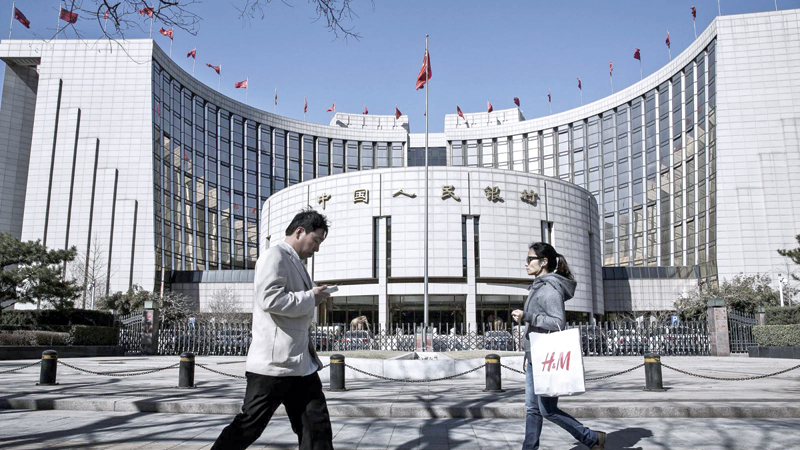

Kevin Yao, Shu Zhang, Stella Qiu -
Beijing is keen to show results after four rounds of policy easing, so China’s big banks are playing along, highlighting their efforts to boost lending to cash-starved small firms, offering collateral waivers and setting loan targets.
But in reality, banks’ loan eligibility requirements for small and medium-sized enterprises (SMEs) remain stringent, making it too difficult or too expensive for them to borrow, according to bankers and company executives.
That has forced some small firms, including exporters, to simply give up on borrowing and put investment plans on hold.
The health of millions of small firms, most privately owned, is crucial to China’s efforts to ward off a sharp slowdown and mass job losses while fighting a bitter trade war with the United States.
The People’s Bank of China (PBOC) has cut the amount of cash commercial lenders must hold as reserves four times since January. The latest reduction in the reserve requirement ratio (RRR) effective October 15 added more than $100 billion to the financial system, the biggest net injection this year.
To guide lending to small firms, authorities have issued directives to banks, arranged meetings between executives of banks and private firms, and doled out tax breaks for banks’ “micro-loans”.
Big banks are keen to show they are heeding the call.
Industrial and Commercial Bank of China (ICBC), the country’s biggest state-controlled lender, says it has opened 230 centres nationwide dedicated to serving small business borrowers.
Interest rates on ICBC’s loans to small business averaged 4.64 per cent in August, it said. That is below the average corporate lending rate of 5.97 per cent in the second quarter.
China’s monetary policy transmission mechanism is working, as corporate lending rates have been falling month-on-month since June, PBOC Governor Yi Gang was quoted by Chinese financial magazine Caixin as saying in an interview published on Saturday.
Agricultural Bank of China (AgBank), the country’s third-largest bank, has put a cap on lending rates at 7.5 per cent above the benchmark lending rate in Wenzhou, according to a local bank official.
AgBank has also set a target on loan issuance to small firms in Wenzhou, while some companies do not need to offer collateral if they have sound tax records, the official said.
Wenzhou, a bustling port city in Zhejiang province, is known for its entrepreneurs. Other provinces with a high concentration of privately owned small companies include Guangdong, Jiangsu and Fujian, all on the coast.
Yet, many small firms say financing conditions remain tight, and official data showed 5.04 million businesses went bust in the first half this year.
“There are many ways a bank can make it look as though it’s lending to SMEs to meet targets, like lending to multiple smaller subsidiaries with a big parent company, or lending to the supplier of a material to a big company,” said a senior banker.
Indeed, official data shows new bank loans have surged.
Total new loans in the first eight months jumped nearly 19 per cent from a year earlier to 11.76 trillion yuan, the latest central bank data showed. That is well on track to set a new full-year record, eclipsing last year’s 13.53 trillion yuan.
But the increased lending barely compensates for shrinking “shadow” loans, one of the major targets of regulators as they seek to curb systemic financial risks.
Off-balance sheet loans used to be a major source of funding for small firms traditionally shunned by the big state banks.
Annual growth in outstanding total social financing (TSF), a broad measure of credit which includes off-balance sheet forms of financing, slowed to 10.1 per cent in August, a record low.
“We have indeed issued much more loans now (to small companies), but in reality, the majority of them still cannot meet our requirements,” said the AgBank official. The weakening in domestic demand and increasingly uncertain export outlook have also dented corporate appetite for funds.
A lamp factory owner in Guangdong surnamed Cai said he wouldn’t consider taking on more debt given the slowdown in the economy, even with banks offering much lower rates. — Reuters
Oman Observer is now on the WhatsApp channel. Click here



